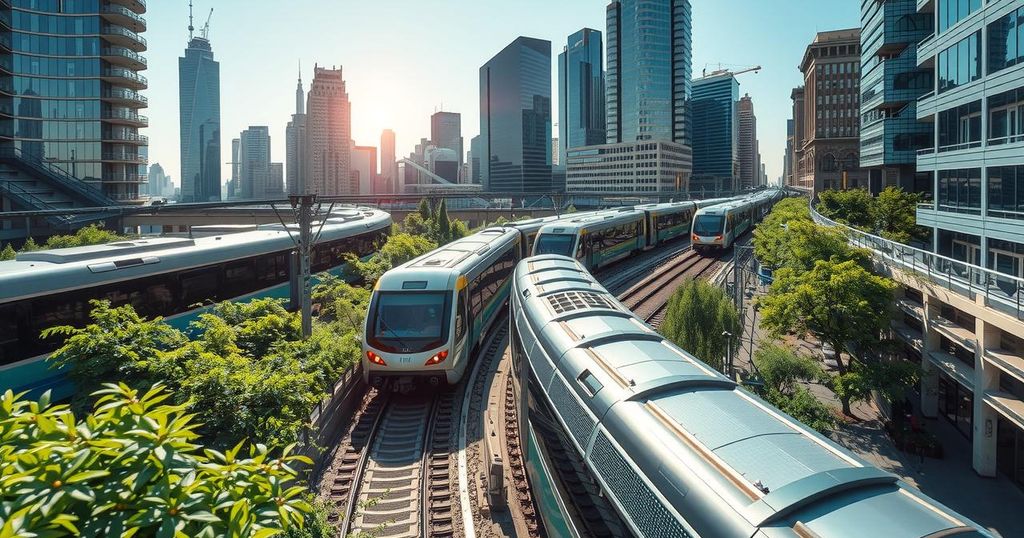Newly appointed Transportation Secretary Vince Dizon aims to accelerate mass transit projects in the Philippines through enhanced public-private partnerships. Despite progress, the development of mass transit systems lags behind neighboring countries due to various challenges. The need to expedite these projects is urgent to improve connectivity, reduce congestion, and alleviate the hardships faced by daily commuters, especially in Metro Manila.
Transportation Secretary Vince Dizon has expressed a commitment to expedite the completion of significant mass transit projects, emphasizing the importance of enhancing public-private partnerships (PPPs). His remarks signal a positive shift for both motorists and commuters, acknowledging the private sector’s vital role in advancing large-scale initiatives that serve the public interest, particularly in rapidly completing mass transit initiatives.
Despite some advancement over the years, the pace of developing mass transit systems in the Philippines remains sluggish compared to regional counterparts. Issues such as right-of-way complications, bureaucratic delays, and financial constraints have hindered progress significantly. Historically, the Philippine rail system, once robust, has lagged behind nations like Indonesia and Vietnam, which have made substantial improvements to their mass transit infrastructures.
The launch of Jakarta’s Mass Rapid Transit in 2019 should trigger urgency for the Philippines to hasten its railway developments. Having experienced efficient transportation systems in global cities such as Tokyo and Singapore, it is evident how crucial public transportation is for economic growth. A dependable transport network not only connects rural and urban areas but also fosters job creation and facilitates trade.
Unfortunately, the situation in Metro Manila contrasts sharply, where the population heavily relies on road transport, leading to severe congestion. The economic impact of traffic gridlock, particularly on key thoroughfares like EDSA, results in significant daily losses. Previous attempts to address the issue have proven ineffective, underscoring the urgent need for reliable mass transit infrastructure.
The delay in infrastructure projects translates into considerable social and economic burdens. Therefore, an immediate shift towards realizing overdue mass transit projects is essential to alleviate the daily struggles faced by millions of Filipinos. High-capacity transit solutions are necessary to support the government’s traffic reform strategies by improving connectivity, alleviating Metro Manila traffic, and reducing public transport challenges.
The historical partnership between the public and private sectors has propelled national advancements, and this trend must continue to meet the increasing economic needs of the nation. The involvement of the private sector is crucial, not only for financial backing but also for introducing innovative solutions. The government must foster a regulatory environment conducive to these partnerships, as mutual confidence is essential for successful project execution.
In enhancing transportation infrastructure, especially rail systems, the shared responsibility between the public and private sectors must be acknowledged, ensuring collective benefits. While the Philippines may not yet boast transportation systems comparable to Japan or Singapore, there is hope that the development of key projects will gain momentum during President Ferdinand R. Marcos Jr.’s administration. Filipino commuters rightfully deserve such improvements, and immediate action is imperative.
In conclusion, the advancement of mass transit projects in the Philippines is crucial for improving transportation efficiency and mitigating traffic congestion. Secretary Dizon’s commitment to expedite these initiatives through public-private partnerships represents a significant step towards modernizing the country’s transport network. With the advent of innovative solutions and collaborative efforts, there remains optimism for substantial development in the sector, ultimately enhancing the daily commuting experience for Filipinos.
Original Source: www.pna.gov.ph




